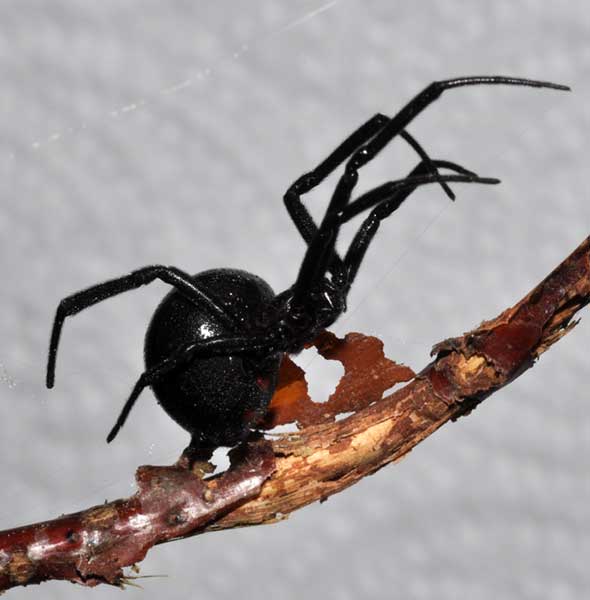What Can I Do About Black Widows Around My House?
I get many calls from people wondering what can be done to minimize the presence of Black Widows? First I have to say, because spiders are small it is hard to totally eliminate them. However, there are some things you can do to cut down their numbers and protect yourself.
-Regularly sweep and vacuum corners and other dark spots, low and high, inside and out. Outdoors you can spray these areas with the hose.
-Frequently check under lawn chairs and picnic tables as well as under children's molded plastic, pedaled toy vehicles that have open areas facing down that a spider might find inviting.
-Don't leave food out that might attract insects, the spiders' prey.
-Keep gardening gloves and other clothing normally kept in the garage or storage shed in sealed containers or ziplock bags.
-Try to keep windows and doorsills, places where spiders can enter the house, sealed with weather stripping.
-Some people claim mothballs or Osage Hedge balls as being effective in killing or driving spiders away.
-Don't bring them indoors on firewood or plants.
Chemicals are not overly effective as, in regards to spiders, they don't have much residual effect and are harmful to other animals, pets and people. If you are not comfortable hunting spiders and killing them, you can always trap them in a jar and relocate them, Usually a few hundred feet from your house in a suitable habitat is plenty of distance. And, no, relocating them in your annoying neighbor's garage is not an option...
For the most part, however, spiders are actually very helpful; they are the most important insect predators in the world. But, a lot of people just don't care about all the good spiders do for us. To these people, the only good spider is a dead spider. Thankfully (at least to avoid being overrun by insects) spiders are very prolific. A single acre can have a population of spiders ranging from 10,000 to 2,000,000!
Along with their prolific nature one other spider behavior makes keeping them under control a problem. This is from the University of California, Davis' web site: "One aspect that makes controlling widow spiders difficult is that they, like many spiders, exhibit a behavior called ballooning. When the spiderlings are very small, on warm days when there is an updraft, they climb to the top of a fence post or piece of vegetation, raise their abdomens into the air, and release a small filament of silk.
When the updraft currents overtake the forces of gravity, the spiderling is carried into the air to another location. This may only be a few feet away, or it could be miles. Ballooning spiderlings have been captured at 10,000 feet from the ground and 200 miles offshore. Because spiderlings will be dropping down on your property continually, eliminating them will be a task that needs to be done repetitively throughout the year."
If you have questions about local bugs feel free to contact us and we will offer what information we can or direct you to other good sources.
Kathy Maguire
Curator of Amphibians and Invertebrates





